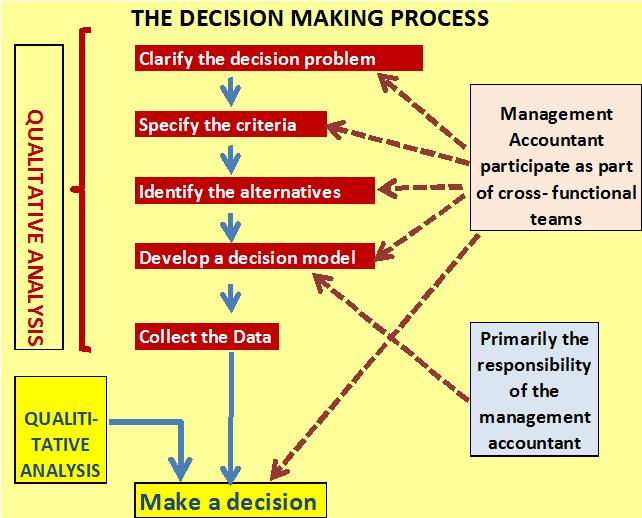DESCRIPTION:
This workshop is intended for those who need to obtain a better understanding of the principles of accounting and financial management. No previous knowledge or experience is assumed.
The subject will introduce you to the role that effective accounting management makes within an organization. The objective is ensure that you are proficient in the use of the accounting data that you will handle in your work environment, as well as making you aware of the criteria and basis on which key financial decisions are made.
You will be introduced to the basic concepts of financial and accounting decision-making and the role of accounting management in. The concepts and techniques will enable you to use and interpret of accounting information and you will become better acquainted with the planning and controlling of resources you have at your disposal.
AIMS:
The aims of this workshop are to:
- develop an understanding of the more important concepts and components in accounting and financial management;
- provide frameworks to formulate and appraise accounting concepts, strategies and policies;
- apply these techniques in business situations (both private and public), and
- Understand the interface between financial management and the other functions in an organization.
Course objectives:
The intent of this workshop is to introduce, discuss, and analyses topics, which taken together, constitute the full spectrum of Accounting Management.
Upon successful completion of this workshop, participants should:
- demonstrate an understanding of the nature of financial management and basic accounting principles;
- analyse the accounting and financial environment of various organisations;
- analyse both short and long term investment decisions, and interpret both internal and external financial reports.
Who should attend?
All financial professionals, financial management, department heads, internal auditors, project managers, accounting clerk and those responsible for ensuring the effective use and Management of Accounting Section. Also, sales and marketing professionals, R&D professionals, and anyone who needs to understand the short and long-term financial impact of key decisions. Participants should have a basic understanding of Finance & Accounting.
Course Outline:
The workshop will cover the following topics:
Module 1: Introduction and Overview:
- The nature of accounting.
- The differences between financial and managerial accounting.
- The desirable characteristics of accounting information.
- The principles of effective financial management.
- The differences between accounting and financial management in the private sector and public sector.
- The background to the preparation of the key financial accounting statements.
- The structure and content of three primary financial statements:
- the balance sheet
- the statement of financial performance (which is either a Profit and Loss Account for a private sector activity or an operating statement for a public sector organization), and
- The cash-flow statement.
- The legal and quasi-legal background to financial reporting.
- The role of external audit in relation to annual financial reports
Module 2: Financial Statement Analysis:
- Identify the informational requirements of key user groups
- Calculate ratios in terms of -
- Profitability,
- Profit,
- Liquidity and working capital,
- Financial structure,
- Performance as an investment.
- Study ratio relationships in order to -
- compare performance with prior periods,
- compare with anticipated results previously reported in budgets and forecasts
- Brief an accountant on how best to undertake a financial analysis on your behalf (i.e., from your stakeholder point of view).
Module 3: Capital Appraisal:
- The principles and objectives behind longer-term decision-making.
- The application of the key non-discounting and discounting capital budgeting techniques.
- The advantages of the discounting techniques over the non-discounting techniques.
- The practical issues surrounding the application of the net present value (NPV) and internal rate of return (IRR) techniques.
- The importance of post-completion audits of capital projects.
Module 4: Costing Concepts and Working Capital Management :
- There are in fact many individual concepts and measures of ‘cost’.
- That different costs are needed for external reporting, forward planning and budgetary management and control.
- Costs relate to time and activity.
- The concept of working capital and why its effective management is important to the financial success of enterprises.
- The concept of the cash conversion cycle and its effective management.
- The principles behind the management of inventories, of debtors and creditors
Module 5: Short-term Decision Making:
- That short-term decisions are mainly concerned with making the most cost-effective and profitable use of existing resources.
- The meaning of ‘avoidable cost’ and ‘attributable’ cost.
- The basic techniques of cost estimation.
- The use of cost-volume-profit charts in order to determine break-even activity levels, profit and contribution.
- The attributes of ABC costing for activity-based (cost) management.
- The uses and limitations of cost information for determining and reviewing prices.
Module 6: Budgetary Control- Planning and Decision Making:
- Budgeting: Financial budgets and forecasts.
- Steps of proper budgeting Assumptions.
- Data collection.
- Budget formulation: Budget procedure.
- Types of budgets.
- Different kinds of budgeting methods, e.g. zero based, activity based.
- How to develop a budgeting methodology.
- How to evaluate the output from budget preparation.
- Budgetary control.
- Budget follow-up and reports: Performance review.
- Variance determination.
- Revisions of budgets and forecast.
WORKSHOP STYLE:
A mixture of short presentations, interactive discussion, individual exercises and group work. The emphasis throughout is on a practical approach using case material and examples.




